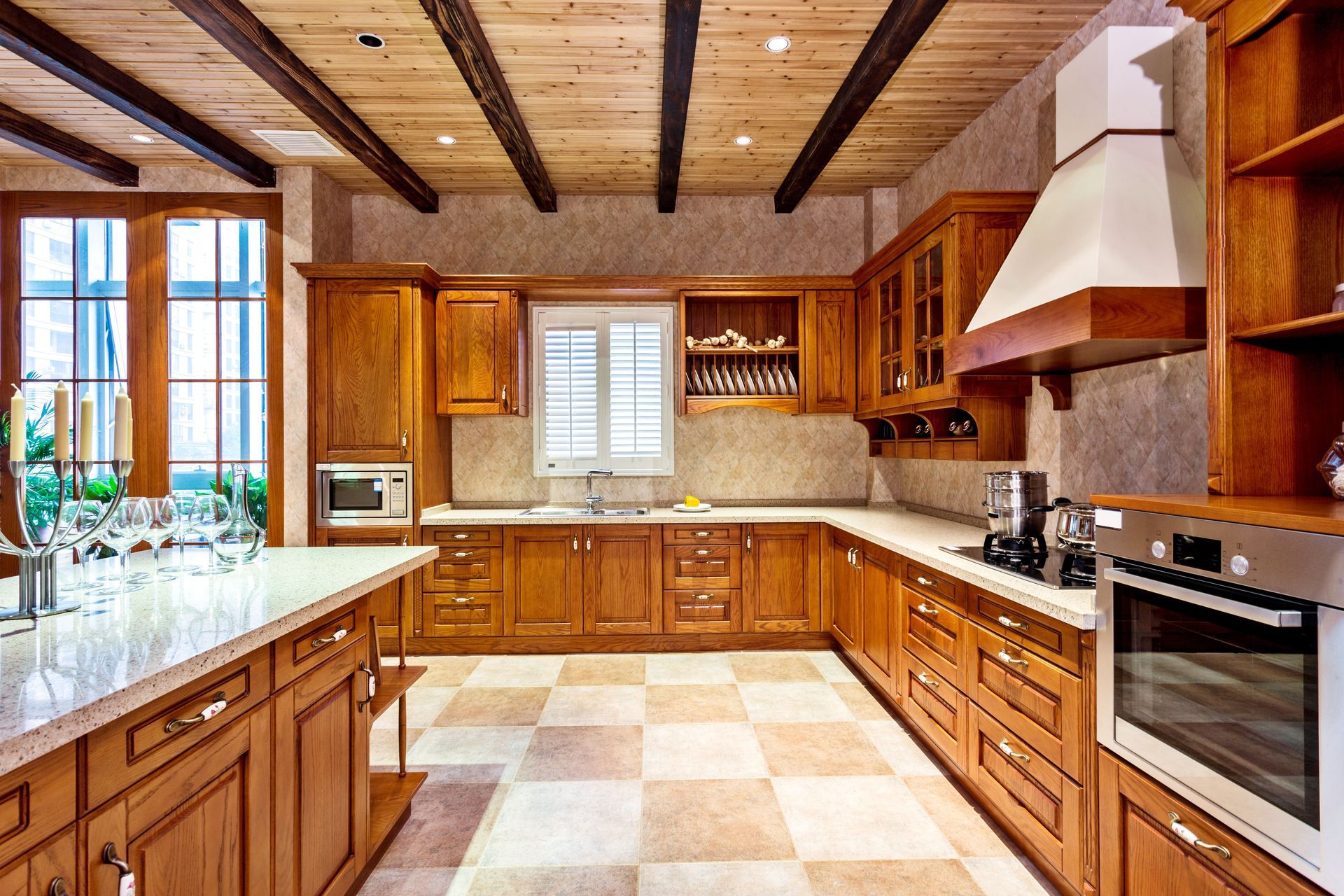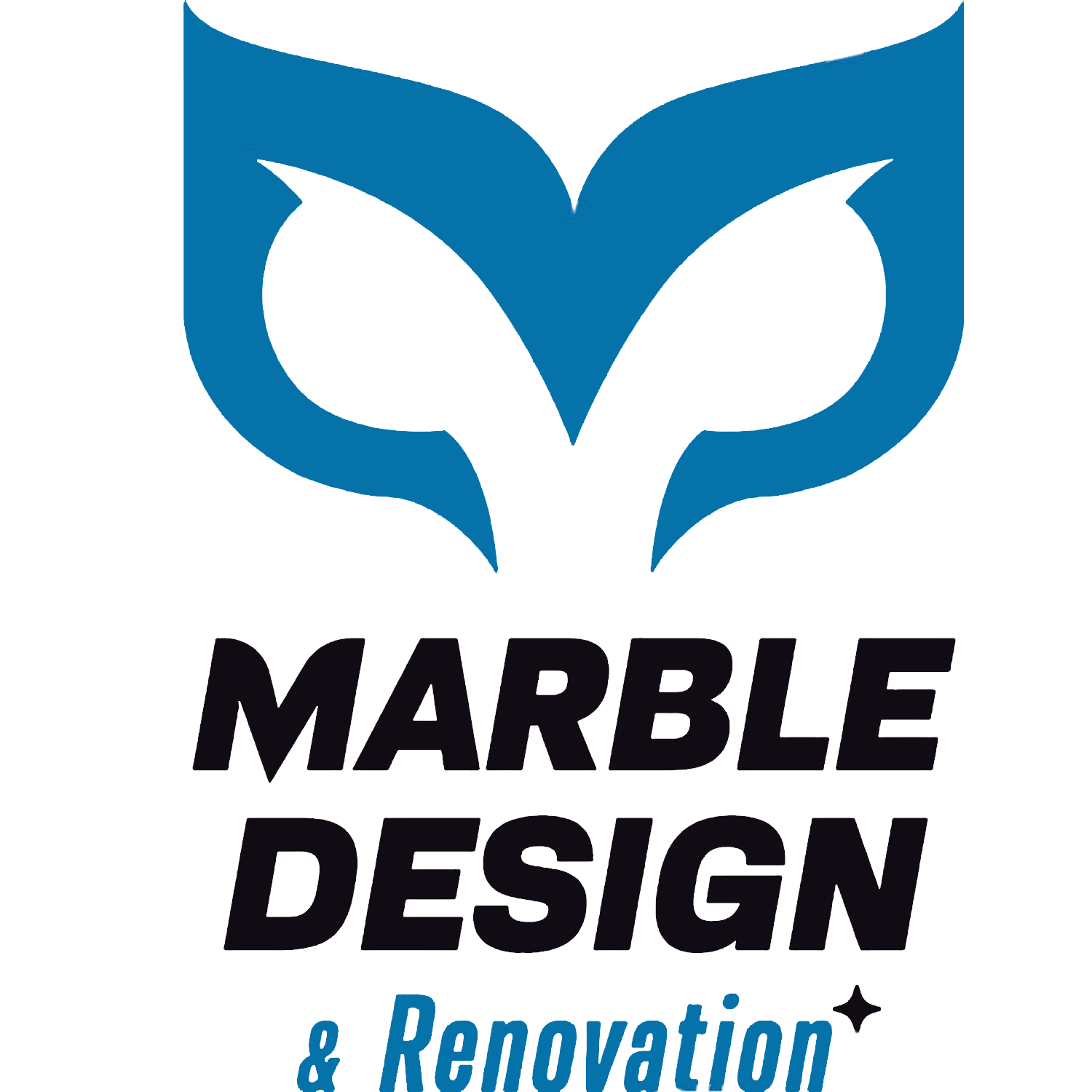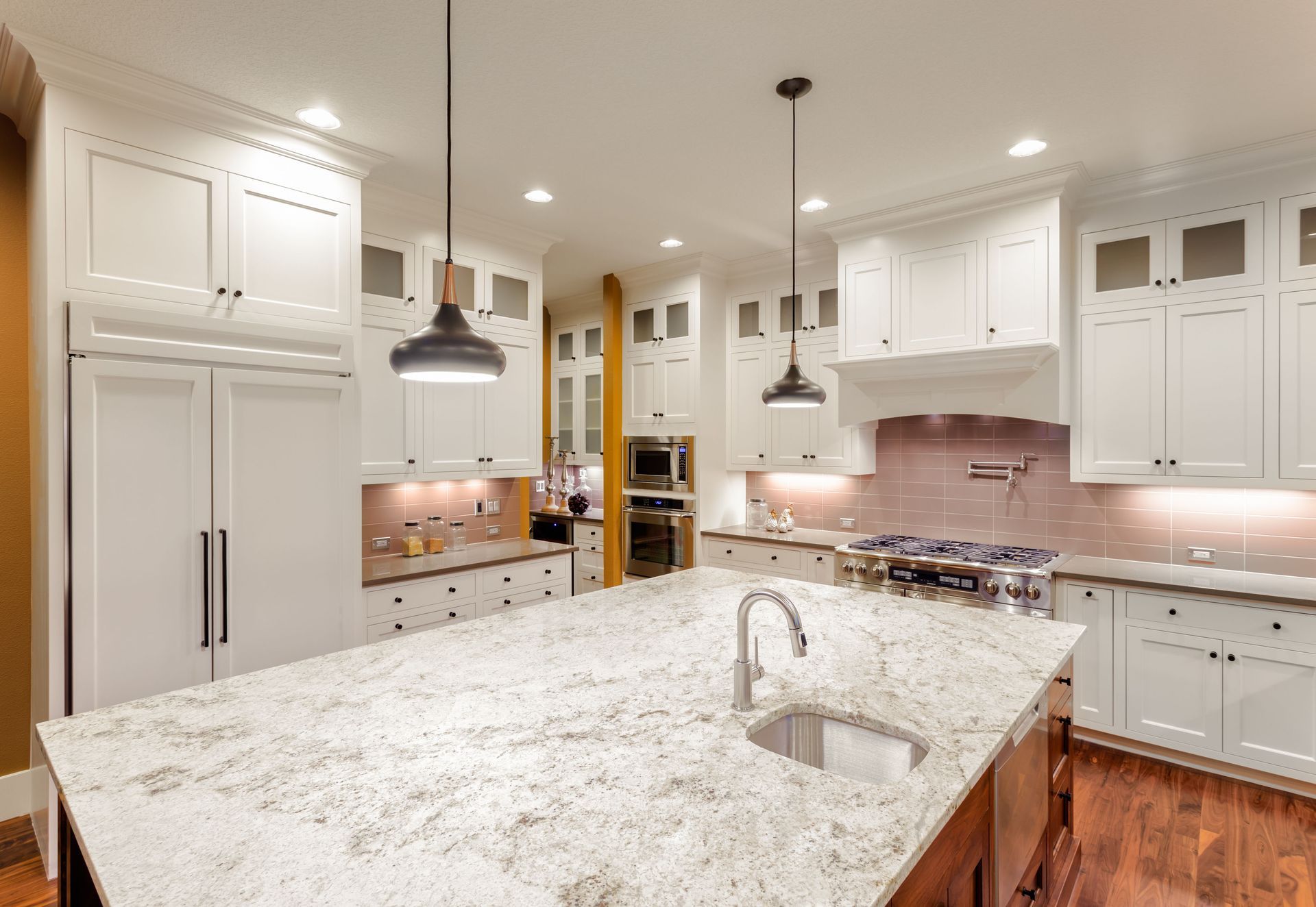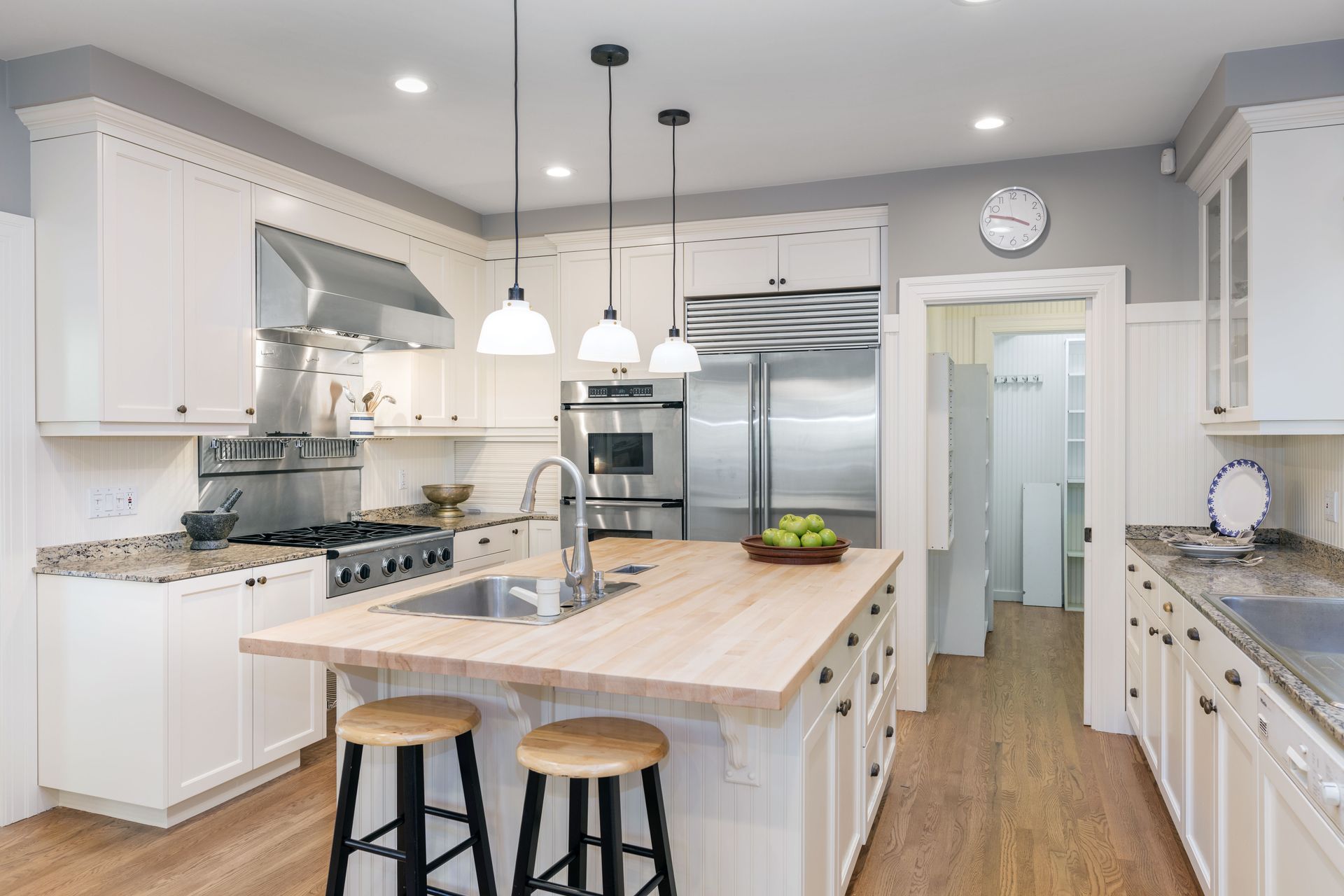October 22, 2025
Kitchen countertop installation is more than just placing a slab on your cabinets; it is a critical aspect of designing a kitchen that is both functional and visually appealing. Whether you are remodeling an existing kitchen or building a new one, understanding the materials, measurements, costs, and maintenance requirements is essential. A well-planned installation can elevate the overall aesthetic of your space while ensuring durability and usability for years to come. By taking the time to plan properly, homeowners can avoid common pitfalls and achieve a result that enhances both style and function.
What Are the Best Materials for Kitchen Countertops?
Selecting the right material is one of the most important decisions in any kitchen countertop installation. Each option offers unique benefits and potential drawbacks, so it is important to align your choice with your lifestyle, budget, and design vision.
Granite
is a timeless option known for its natural beauty and durability. It resists heat and scratches, making it ideal for busy kitchens. However, granite requires periodic sealing to prevent stains and maintain its polished look.
Quartz
countertops offer a low-maintenance alternative that mimics the appearance of natural stone. Engineered quartz is non-porous, making it highly resistant to bacteria, stains, and scratches. It is also available in a wide range of colors and patterns, providing flexibility in design choices.
Laminate
countertops are an affordable option that allows for creative patterns and colors. While less durable than stone options, modern laminates are surprisingly resilient and easy to clean, making them suitable for homeowners on a budget.
Solid
Surface
materials like Corian provide seamless installations with integrated sinks, creating a sleek, uniform appearance. These surfaces are repairable if scratched, although they may not withstand extreme heat as well as stone.
Butcher Block
countertops
offer warmth and a natural look that complements many kitchen designs. They require regular oiling to prevent drying and cracking, but are perfect for homes where cooking and food prep are frequent activities.
Choosing the right material is crucial not only for aesthetics but also for ensuring that your kitchen countertop installation meets your long-term functional needs. The material you select affects durability, maintenance requirements, and how well your countertop will withstand daily wear and tear, ultimately influencing both the performance and appearance of your kitchen for years to come.
How Do I Measure for New Kitchen Countertops?
Accurate measurements are critical to a successful kitchen countertop installation. Improper sizing can result in gaps between the countertop and cabinets, uneven overhangs, or adjustments that can be both time-consuming and costly. Begin by carefully measuring the length and depth of each section where the countertop will be placed. Be sure to account for all areas around sinks, appliances, and corners, as these often require precise cutouts or special fittings to ensure a clean, professional look.
It is highly recommended to measure each section more than once to confirm accuracy, ideally having a second person verify your measurements. Pay close attention to any irregular walls, angles, or cabinet shapes that could require custom fabrication. Even minor deviations can affect the fit, so documenting all dimensions on a detailed sketch or diagram is invaluable. This not only helps contractors visualize the space but also minimizes the risk of errors during the installation process.
In addition to precise measurements, it is important to consider overhang requirements, especially for islands or seating areas. While a standard countertop overhang is typically 1 to 1.5 inches for areas without seating, overhangs intended for bar stools or breakfast bars can extend up to 12 inches. Ensuring that these measurements are correct allows for both aesthetic appeal and practical use, preventing situations where overhangs are too short for comfortable seating or too long to support properly. Thoughtful measurement and planning in this stage are essential for a kitchen countertop installation that not only fits perfectly but also complements the overall kitchen design and functionality.
What Is the Typical Cost of Kitchen Countertop Installation?
The cost of
kitchen countertop installation can vary depending on the materials chosen, the complexity of the project, and the type of labor involved. Premium materials like granite or quartz generally cost more than laminate or butcher block, but they offer superior durability and aesthetic appeal.
Labor considerations include the level of customization required, such as intricate cutouts, corner joints, or island installations. Additional elements like backsplash integration and cabinet adjustments can also influence the overall cost.
Understanding the range of factors that affect pricing helps homeowners make informed decisions and plan their projects more effectively. Investing in quality materials and installation ensures a long-lasting kitchen upgrade that enhances both appearance and functionality.
It is also worth noting that a well-executed kitchen countertop installation can contribute to home value. According to Forbes, an attractive backsplash, often installed in tandem with new countertops, can increase the perceived value of your home by up to 5%, making this upgrade a worthwhile investment.
How Long Does Kitchen Countertop Installation Take?
The time frame for kitchen countertop installation depends on several factors, including the material selected, the complexity of the kitchen layout, and the availability of professionals. Simple installations with laminate or solid surface materials can often be completed within a few days.
Stone countertops, like granite or quartz, may require longer lead times due to fabrication and templating processes. Once materials are delivered, installation typically takes one to three days for an average-sized kitchen, with additional time needed for adhesives, sealing, and finishing touches.
Scheduling the installation with sufficient buffer time ensures that other kitchen remodel elements, such as backsplash or cabinet adjustments, can proceed without delays. Understanding the timeline helps homeowners coordinate contractors and minimize disruptions to daily routines.
How Can You Maintain and Care for Your Kitchen Countertops Post-Installation?
Proper maintenance is key to preserving the beauty and functionality of your kitchen countertops after installation. Each material has specific care requirements, but some general practices apply across the board.
For stone surfaces like granite or quartz, regular cleaning with mild soap and water prevents the buildup of grease and grime. Avoid harsh chemicals or abrasive pads that can damage the surface. Granite countertops should be resealed every one to two years to maintain their stain resistance and sheen.
Laminate and solid surface countertops are easy to maintain with routine wiping and occasional disinfecting. Avoid cutting directly on the surface to prevent scratches, and use heat pads under hot pots and pans to protect against warping or burns.
Butcher block countertops require periodic oiling to prevent drying and cracking. Sanding and refinishing may be necessary over time to restore their appearance, but with proper care, they can last for decades.
Adopting these maintenance practices not only ensures a long-lasting countertop but also preserves the aesthetic appeal, making your kitchen feel fresh and inviting for years after your kitchen countertop installation is complete.
Kitchen countertop installation is a significant investment that impacts both the functionality and style of your kitchen. From choosing the right material to measuring accurately, planning effectively, and maintaining the surfaces over time, every detail matters. By planning thoroughly and making informed decisions, homeowners can achieve a kitchen that is visually striking, highly functional, and built to last. Whether you are upgrading your existing countertops or designing a new kitchen from scratch, paying attention to these essential considerations ensures that your investment will provide long-term satisfaction and elevate the overall value of your home. If you want to add utility and beauty to your home with new countertops, contact Marble Design & Renovation LLC today!









